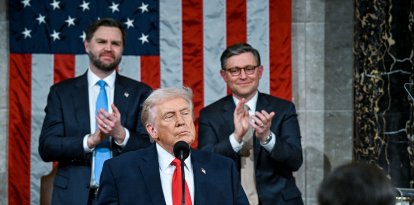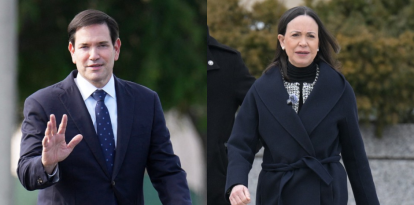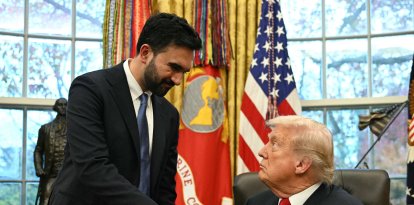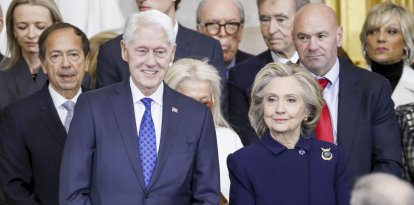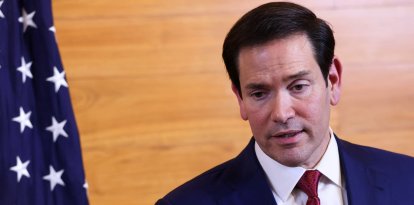ANALYSIS
China, Qatar, Saudi Arabia: Adversarial countries poured billions of dollars into US universities
A report reveals that elite universities received more than $60 billion from foreign governments, some considered adversaries of the U.S.
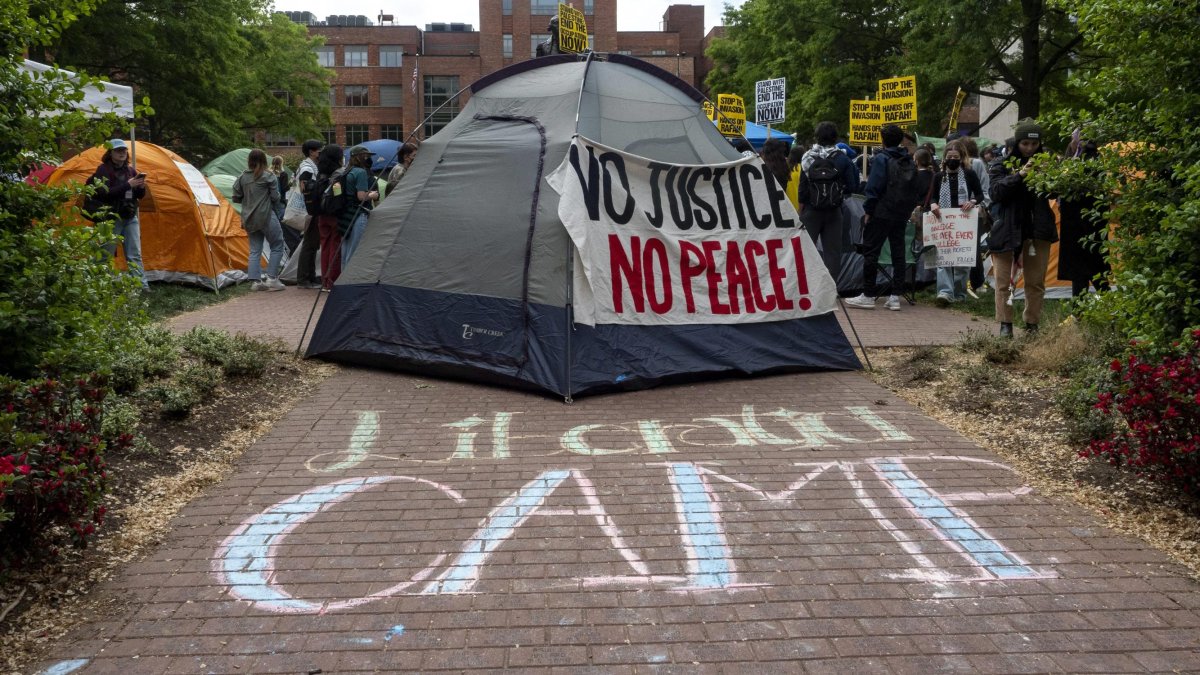
Pro-Palestinian protests have been linked to foreign money
How are universities funded? Over the past hours and weeks, government threats to cut federal grants to them have brought billion-dollar figures to light. Despite the uproar generated around those funds, with airy discussions about antisemitism, academic freedom and the limit on executive power, there is one controversial source of revenue that threatened controversy: funds received from countries that are adversaries of the United States.
A recent study by the think tank Americans for Public Trust (APT) puts the money coming from foreign countries (friend and foe) at $60 billion over the last decades, of which $20 billion was concentrated in 10 universities:
Among those 10 "fortunate" recipients of international money are three Ivy League universities that the Trump administration has lashed out against: UPenn, Harvard and Columbia. He threatened cutting grants to all of them. The situation at UPenn arose from for allowing transgender athletes to compete in women's sports; while the last two (and Princeton) were threatened for their lax policies against antisemitism. For the moment, only Columbia recanted, acceding to several demands from the Trump administration.
Tuition, fees, contracts, public funds, grants... University funds are filled with money from multiple sources. In recent times, the federal government has been gaining clout, becoming, in the words of Princeton President Christopher Eisgruber, "a public patron more powerful than any private donor."
"Their budgets became heavily dependent on that single source," he also wrote in The Atlantic, in an article critical of Trump's economic pressure on universities. Weeks later, his own university had dozens of grants cut.
In fiscal year 2024, the eight Ivy League schools received $6.4 billion in federal money, according to public data analyzed by Fox. Beyond the ongoing debate over how to distribute them, there is a credible record of the dollars that educational institutions receive from the White House. The same is not true for those arriving from other houses and palaces of government.
Qatar, China, Saudi Arabia and 'shadow money'
Although Article 117 of the Higher Education Law establishes that universities must report contracts and gifts from foreign sources in excess of $250,000, experts have been claiming for years that there is rampant non-compliance with the law.
These voices come not only from institutes such as the Emerging Technology Observatory or APT. Even the Department of Education published a report in 2020 asserting that "historically" out of 6,000 educational institutions only 300 report those revenues as required.
The Department of Education further emphasizes that universities "manage to track every cent owed and paid by their students; there is no doubt they can – and indeed do – track funds coming from foreign sources, including those adversarial to American interests."
"Therefore, it is hard to understand, for example, how Yale University could have simply failed to report any foreign gifts or contracts for four years or Case Western Reserve University for 12 years," the report's authors wrote, noting, "Precisely when both were rapidly expanding their foreign operations and relationships — including with China and Iran."
China, Iran, Russia, Venezuela, Qatar, Yemen, among others, "have collectively syphoned billions into American schools," Americans for Public Trust asserts. In 2024, the top three donors were Qatar, China and Saudi Arabia:
The motive behind foreign investments
"Unchecked foreign money may assert or buy influence over research and curriculums, spread harmful anti-American propaganda, and can facilitate corporate espionage and the theft of invaluable intellectual property," APT explains the motives behind these investments, mostly in contracts or gifts.
The aforementioned Department of Education report points to similar causes: "Project soft power, steal sensitive and proprietary research, and spread propaganda." It further notes that the education industry knows that they hide "hostile" intentions toward the United States.
In the case of China, APT notes that the scope of its "vast enterprise" cannot be "understated." Although the amount it reached in 2024 helps to magnify it: $175 billion to various U.S. universities. As alarming evidence of this influence, the organization points to cases of researchers arrested for espionage and the controversial Confucius Institutes.
House lawmakers declared last year that billions of dollars of federally supported research ended up bolstering China's military through collaborations with Chinese institutes, which would have served as a conduit between the People's Republic of China, and the advances of institutes such as UCLA, U.C. Berkeley and the University of Pittsburgh.
On the other hand, APT claims there is a link between pro-Palestinian demonstrations on campuses and Qatar, "a nation that has long shielded and protected the leadership of Hamas." Its investment allegedly resulted in the seizure of compounds, blockades, and insults to Jewish students...
The Trump administration warned 60 institutes of higher education that are under investigation for those causes. As for Congress, several lawmakers have introduced rules on the matter: Democrat Ritchie J. Torres introduced a bill to prohibit them from receiving gifts from nations that fund terrorism, Republican Michael Baumgartner got his fellow representatives approve a proposal to tighten rules for foreign income registration.
So far, no bill has passed both chambers of Congress.















